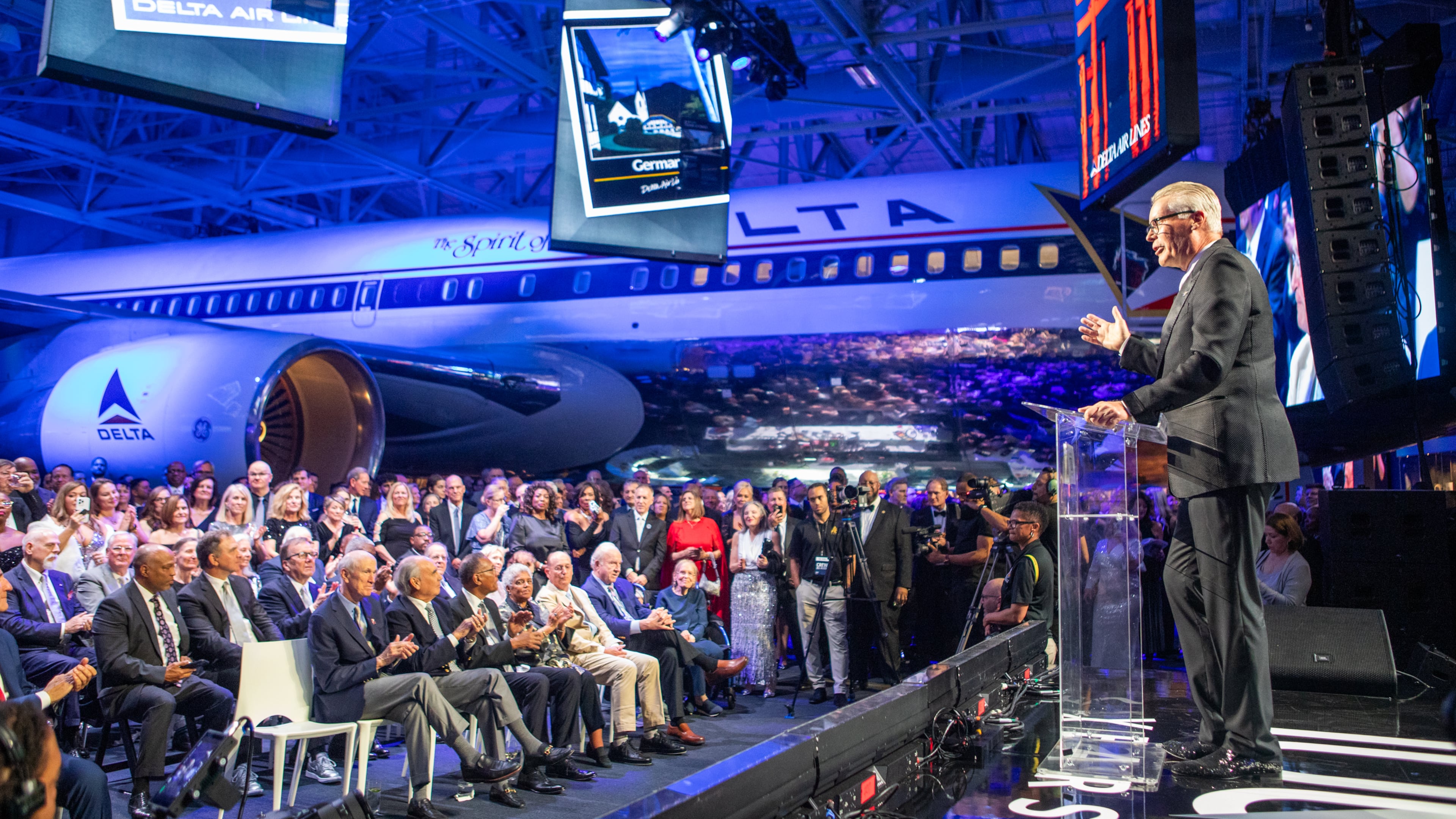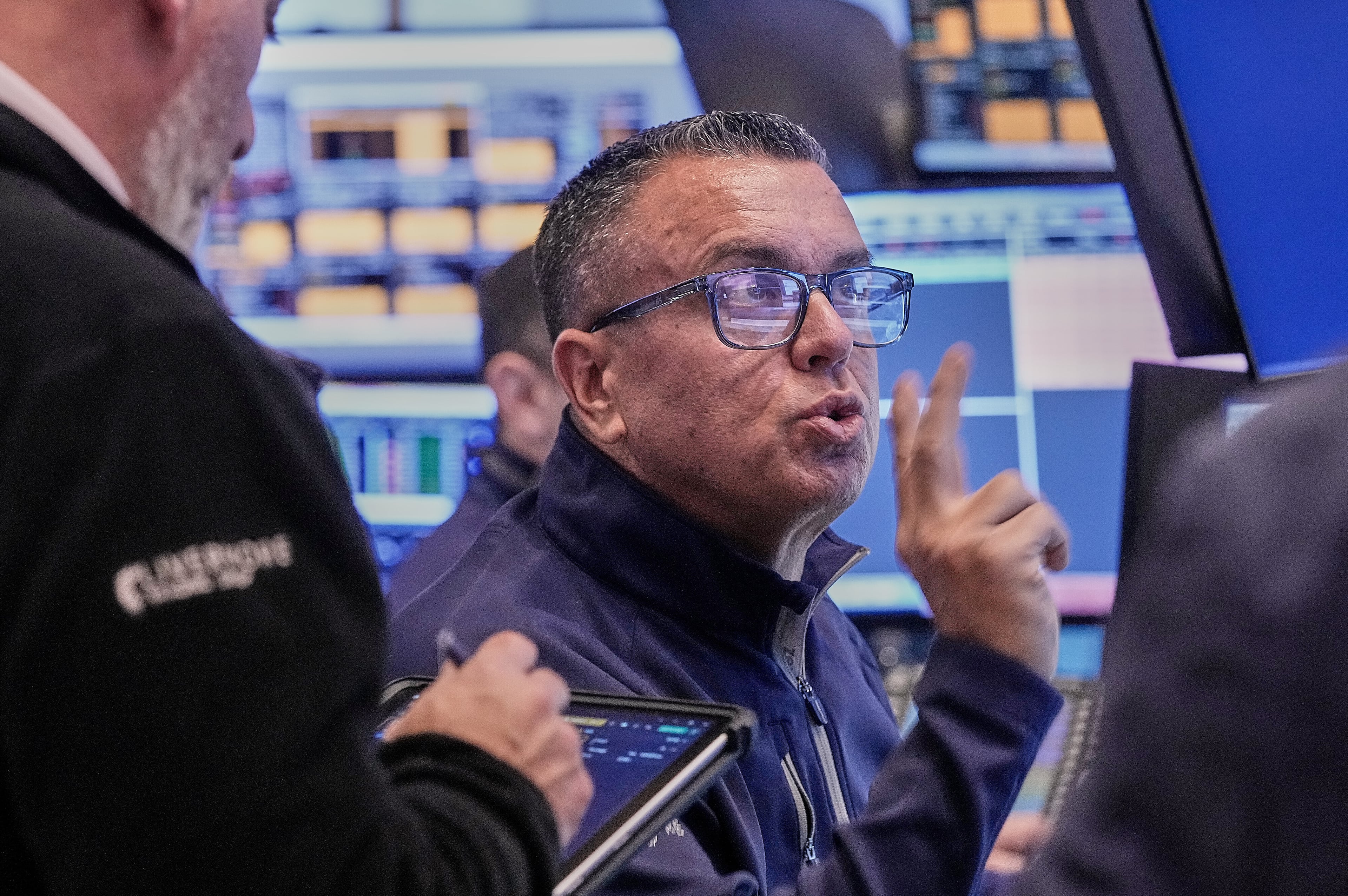Delta expected 2025 would be its best year ever. Then the tariffs came.

What a difference three months makes.
In early January, days after marking the company’s centennial in Las Vegas, Delta Air Lines CEO Ed Bastian ebulliently predicted 2025 would be its best financial year in history with 7% revenue growth.
But the Trump administration’s wide-ranging, unprecedented and unpredictable approach to tariffs seem to have upended those plans.
In its first quarter earnings release Wednesday, Atlanta-based Delta backpedaled that forecast. While it still expects “solid profitability,” the airline said its 2025 revenue could range somewhere between 2% growth and a 2% decline year over year.
Like other airlines, Delta sounded early warnings about 2025 last month when it cut its projected quarterly revenue in half because of effects from recent plane crashes and macro “uncertainty.”
Bastian told The Atlanta Journal-Constitution in an interview the tariffs and “overall trade uncertainty” have continued to dampen consumer and corporate demand.
The company says it is cutting flight capacity growth in the back half of the year, allowing “natural attrition” to shrink its workforce, managing maintenance costs and accelerating older aircraft retirements, Delta Chief Financial Officer Dan Janki said in a call with investors.
Bastian added they have no plans for layoffs.
“It’s clear that the current climate cannot sustain itself very long, and we need to get to a more stable and balanced trade outcome,” Bastian told the AJC.
“I’m confident we will. I’m just not confident how long it’s going to take.”
Later Wednesday, the Trump administration announced a 90-day pause on many of his new tariffs, while raising the tax rate on Chinese imports to 125%.
‘Candidly, a bit chaotic’
Bastian pointed out that Delta itself successfully sought help from the first Trump administration to deal with what American carriers called unfair competition between subsidized Middle Eastern carriers.
There is “no question that there are areas where the U.S. has been taken advantage of in trade,” he said.
“To the extent there’s inequities, we would encourage our government to seek remedies. But trying to do it all at once is, candidly, a bit chaotic.”
He added that the thrust of the administration’s policy is “in contrast to what we stand for,” which is to “bring the world closer” and expand global travel. That’s why, he said, Delta will continue to work with the administration, suppliers and international partners to help find a resolution.
In his remarks before the tariffs were paused, Bastian said: “If unresolved for an extended period of time, it could grow into a crisis. But I wouldn’t put it at a crisis at this moment.”
As to how long an “extended period of time” means, Bastian was direct: “I don’t know.”
‘Differently than we expected’
The Atlanta-based airline brought in $14 billion in revenue for the first quarter, up 2% year over year from $13.7 billion. It did still make $240 million in net income — up from last year’s $37 million, which was its first Q1 profit since the COVID-19 pandemic.
While the company still expects to be profitable for the year, “2025 is playing out differently than we expected at the start of the year,” as Hauenstein acknowledged in an earnings release.
The airline was originally expecting 10% growth in corporate customers this year, but that has flattened, Bastian told the AJC.
Plus, the company is seeing its most “price sensitive” customers — the type that fly domestic in the main cabin on nonpeak flights — pull back, too.
Regarding the potential impacts tariffs might have on the cost of new planes, Bastian insisted Delta has “no intention of paying” them.
The company is working with its suppliers and partners, he said, but “airplanes are expensive enough. If you add another 20% it just makes them uneconomic.”
The company plans to cut back planned capacity growth this year starting in August and focus first on off-peak times. Particularly due to Southeastern school years starting earlier, August is no longer a peak month, Delta President Glen Hauenstein told investors.
We’re going to “eliminate unprofitable flying, wherever that is,” he said.
Canada has already seen drop off in demand, and that country and Mexico, he added, are places where they will likely look to reduce capacity, too.
But there are “green shoots” in the results, Bastian told investors Wednesday morning.
Delta’s international and premium revenue stayed strong for the quarter despite the macro headwinds, the company highlighted in its news release. Its American Express partnership also brought in record first quarter revenue of $2 billion.
Bastian predicted across the airline industry Delta will see the best quarterly performance, but said others are likely seeing the same macro impacts.
He said in his remarks before the tariffs were paused that there is “always hope” the company could claw back its big hopes for 2025, particularly if the administration would remove the “largely self-imposed” tariffs, “declare success and move forward.”
But, he said, ultimately: “We just don’t know. We don’t know what the path is. It’s out of our control.”



